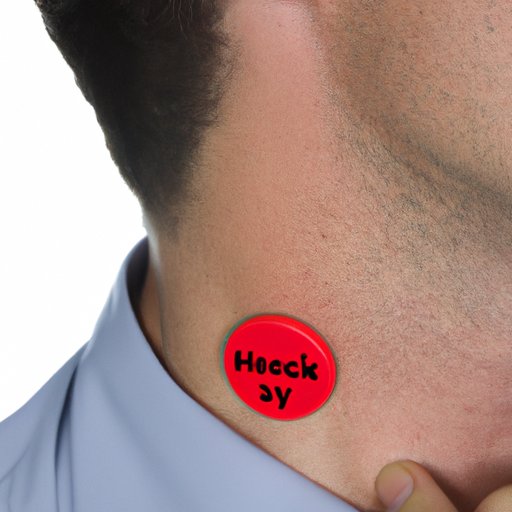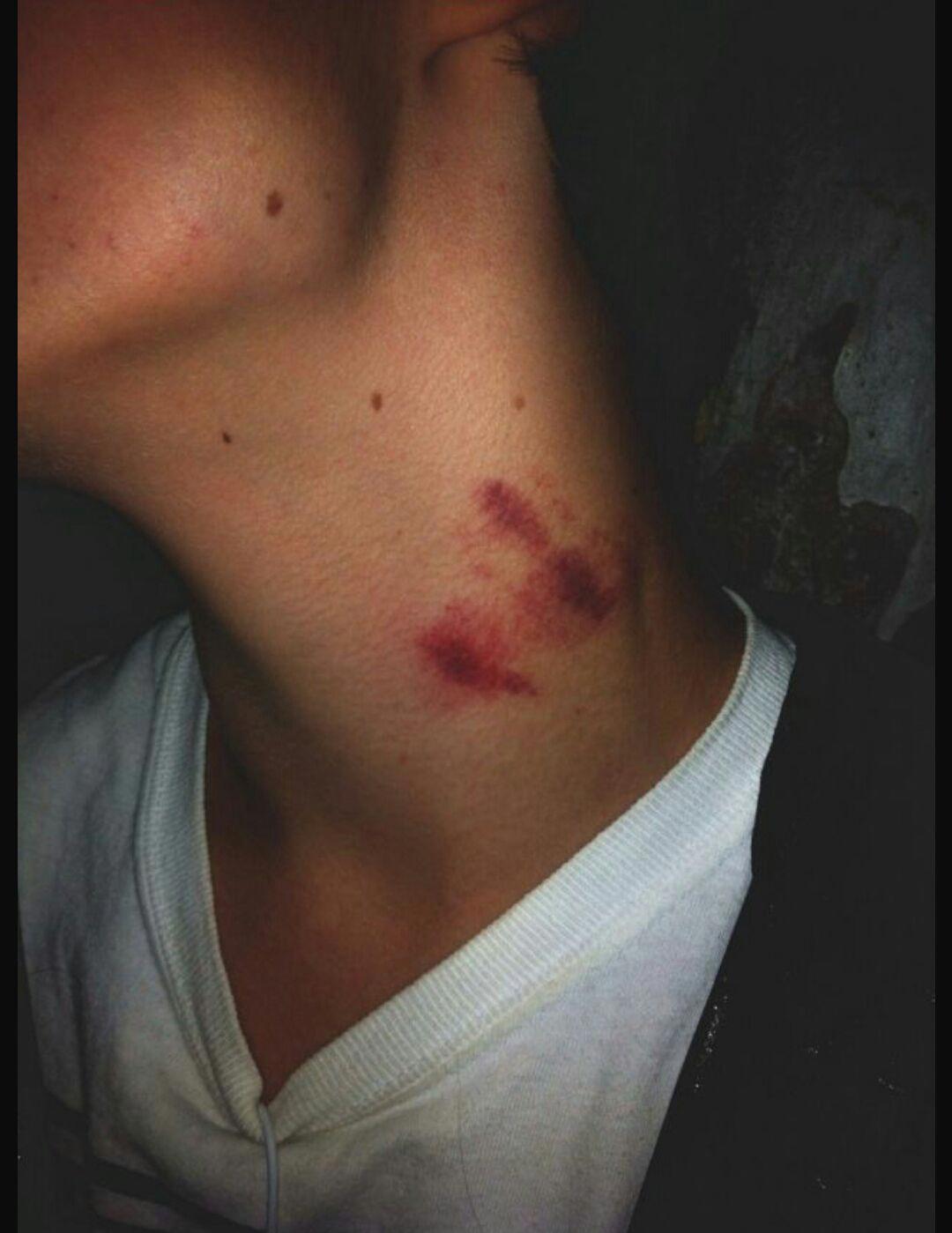Are Hickeys Bad For You? The Surprising Truth You Need To Know
Let’s be real, we’ve all been there—sneaking around, hoping no one notices that little love mark on your neck. But have you ever stopped to think, are hickeys bad for you? Spoiler alert: they’re not exactly harmless little souvenirs of romance. In this article, we’ll dive deep into the world of hickeys, exploring everything from the science behind them to the potential risks they pose to your health.
Now, before we get into the nitty-gritty, let’s set the mood. We’re here to give you the straight facts, no sugarcoating. Hickeys might seem like a fun way to show affection, but there’s more to them than meets the eye. So, grab a drink, get comfy, and let’s unpack this together.
By the time you finish reading, you’ll have all the info you need to decide whether that little mark is worth the potential trouble. And hey, who knows? You might even learn something new about your body in the process.
Read also:Kaitlyn Jenner Boyfriend The Inside Scoop Youve Been Waiting For
What Exactly Is a Hickey Anyway?
First things first, let’s break down what a hickey actually is. Put simply, a hickey is basically a bruise caused by suction or biting on the skin. When someone sucks hard enough on your neck, it causes tiny blood vessels called capillaries to burst, leaving behind that telltale red or purple mark. Sounds glamorous, right? Not so fast.
While it might seem like a harmless little souvenir of love, there’s a bit more going on under the surface. The skin is one of the most important organs in your body, and anything that damages it—whether it’s a sunburn, a cut, or yes, even a hickey—can have consequences. Let’s explore this further in the next section.
Are Hickeys Bad for You? The Science Behind It
So, here’s the million-dollar question: are hickeys bad for you? The short answer is yes, kinda. While a hickey itself isn’t life-threatening, it does involve some level of trauma to the skin. Here’s how it works:
- When you get a hickey, the capillaries in your skin burst, causing blood to pool under the surface.
- This pooling of blood is what gives a hickey its signature dark color.
- Over time, your body will naturally reabsorb the blood, and the hickey will fade, but this process can take anywhere from a few days to a couple of weeks.
Now, here’s where it gets interesting. While a hickey might seem like a temporary issue, repeated damage to the skin can lead to more serious problems down the line. Let’s talk about that next.
Long-Term Effects of Repeated Hickeys
If you’re someone who gets a lot of hickeys (hey, no judgment here!), it’s worth considering the long-term effects on your skin. Repeated trauma to the same area can lead to:
- Hyperpigmentation: This is when the skin in the affected area becomes darker than the surrounding skin, and it can take months or even years to fade.
- Scarring: In extreme cases, repeated damage to the skin can lead to permanent scarring.
- Increased Risk of Infection: Anytime the skin is damaged, there’s a risk of infection, especially if the area isn’t kept clean.
So, while one or two hickeys might not seem like a big deal, if you’re getting them regularly, it’s worth thinking about the long-term impact on your skin.
Read also:Tanya Orourke Husband The Inside Story Youve Been Waiting For
Health Risks Associated with Hickeys
Let’s talk about the health risks associated with hickeys. While they’re not typically dangerous, there are a few things to keep in mind:
1. Risk of Blood Clots
In rare cases, a hickey can lead to the formation of a blood clot. This happens when the blood that pools under the skin starts to coagulate, forming a solid mass. While this is pretty uncommon, it’s definitely something to be aware of, especially if you have a history of blood clotting disorders.
2. Risk of Infection
As we mentioned earlier, any time the skin is damaged, there’s a risk of infection. If the area around the hickey isn’t kept clean, bacteria can enter the wound and cause an infection. Symptoms of an infected hickey include redness, swelling, and pus.
3. Risk of Nerve Damage
In extremely rare cases, a hickey can cause nerve damage, especially if it’s located in a sensitive area like the neck. While this is pretty unlikely, it’s still something to be aware of, especially if you experience numbness or tingling in the affected area.
How to Treat a Hickey Safely
Okay, so let’s say you’ve already got a hickey. What can you do to treat it safely and effectively? Here are a few tips:
- Apply Ice: Ice can help reduce swelling and minimize the appearance of the hickey. Just be sure to wrap the ice in a cloth to avoid damaging the skin.
- Use Arnica Cream: Arnica cream is a natural remedy that can help speed up the healing process by reducing inflammation and promoting circulation.
- Stay Hydrated: Drinking plenty of water can help your body flush out the excess blood more quickly, which can help the hickey fade faster.
By following these tips, you can help minimize the appearance of a hickey and speed up the healing process.
Preventing Hickeys: Tips and Tricks
Of course, the best way to deal with a hickey is to avoid getting one in the first place. Here are a few tips for preventing hickeys:
- Go Easy on the Suction: If you’re getting a little carried away, try to ease up on the pressure. Gentle kissing is less likely to cause a hickey than aggressive suction.
- Use Protective Clothing: If you’re worried about getting a hickey, try wearing a scarf or turtleneck to protect your neck.
- Communicate: If you’re with a partner who’s a little too enthusiastic, don’t be afraid to speak up and let them know how you feel.
By taking these precautions, you can help prevent hickeys from happening in the first place.
Are Hickeys Bad for Your Relationship?
Now, let’s talk about the social implications of hickeys. While they might seem like a fun way to show affection, they can also cause problems in a relationship. Here are a few things to consider:
- Trust Issues: If you’re in a committed relationship, a hickey can raise questions about fidelity, especially if your partner sees it and doesn’t know where it came from.
- Social Stigma: Let’s face it, hickeys can carry a certain stigma, especially in professional or social settings. Some people might judge you for having one, which can be embarrassing.
- Communication: If you’re worried about getting a hickey, it’s important to communicate with your partner and set boundaries that work for both of you.
By being open and honest with your partner, you can help avoid misunderstandings and keep your relationship healthy and happy.
Conclusion: Are Hickeys Worth the Risk?
So, are hickeys bad for you? The answer is a little more complicated than a simple yes or no. While they’re not typically dangerous, they do involve some level of trauma to the skin, and repeated damage can lead to long-term effects like hyperpigmentation and scarring. Plus, there’s always the risk of infection or social stigma to consider.
That said, if you do decide to get a hickey, there are steps you can take to treat it safely and minimize the risks. And if you’re worried about getting one in the first place, there are plenty of ways to prevent it from happening.
In the end, it’s all about balance. If you’re in a healthy, consensual relationship and you both agree that a hickey is worth the risk, go for it. But if you’re unsure or worried about the potential consequences, it might be worth reconsidering.
So, what do you think? Are hickeys worth the risk, or is it better to play it safe? Let us know in the comments below, and don’t forget to share this article with your friends!
Table of Contents
- What Exactly Is a Hickey Anyway?
- Are Hickeys Bad for You? The Science Behind It
- Long-Term Effects of Repeated Hickeys
- Health Risks Associated with Hickeys
- How to Treat a Hickey Safely
- Preventing Hickeys: Tips and Tricks
- Are Hickeys Bad for Your Relationship?
- Conclusion: Are Hickeys Worth the Risk?


